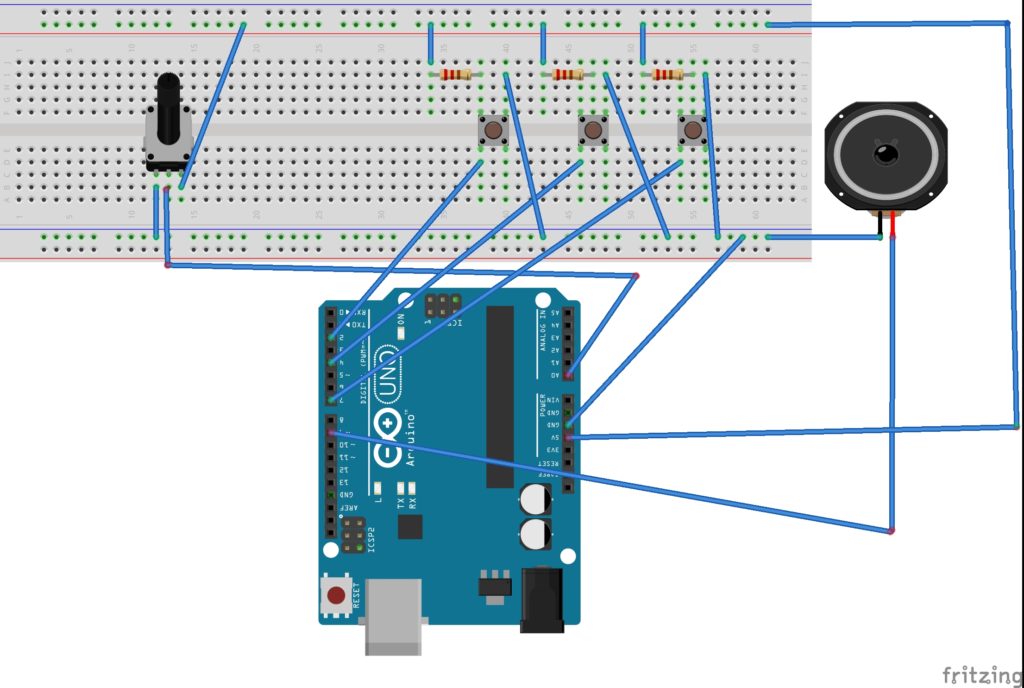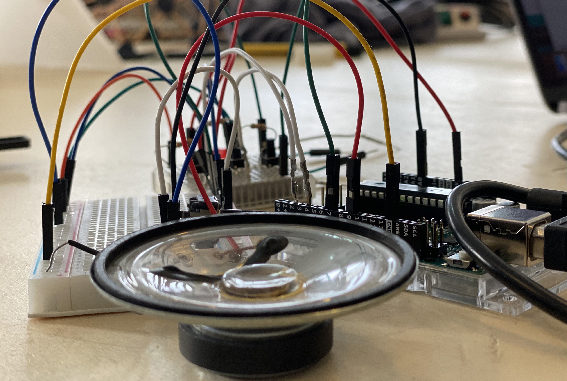
Voici un arpeggiator. Il fonctionne de la façon suivante :
- 3 boutons dont chacun crée une suite de notes. Ici le premier fait : SOL-DO-MI. Le deuxième : SOL-SI-MI. Le troisième : SOL-LA-DO.
- 1 potentiomètre qui gère la rapidité des arpèges.
En appuyant sur les 3 boutons successivement on obtient une mélodie dont on peut régler le « tempo » en tournant le potentiomètre.
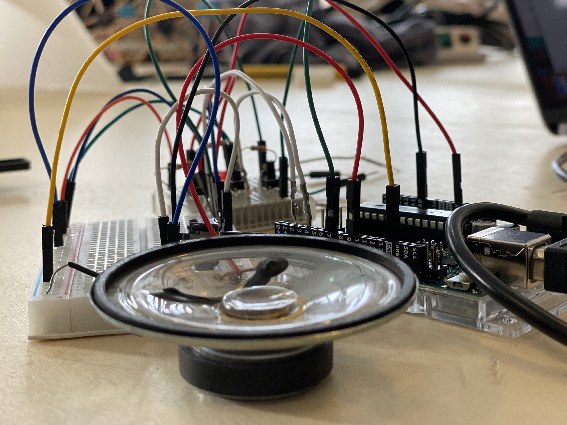
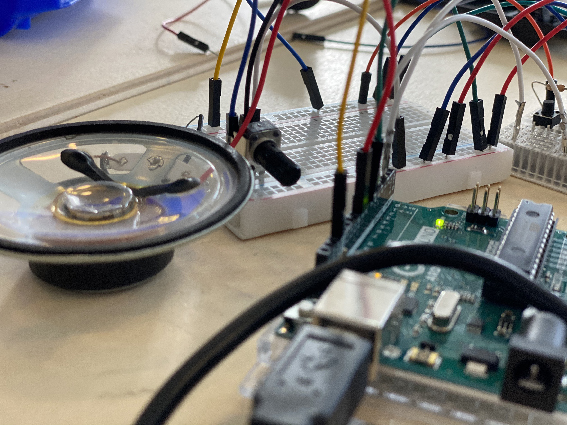
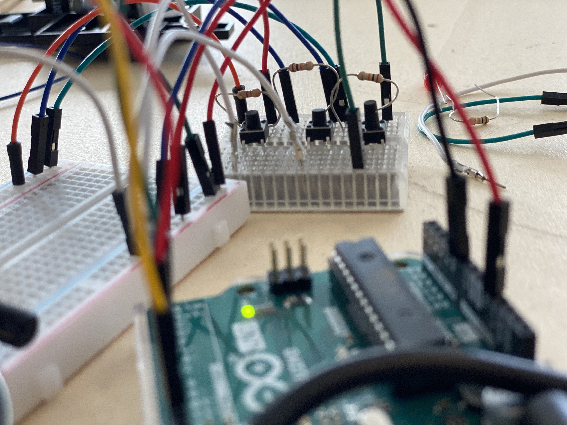
#include "pitches.h"
//potentiometre
int val;
int analogPin = A0;
//BOUTTON
const int buttonPin1 = 2;
int buttonState = 0;
const int buttonPin2 = 4;
int buttonState2 = 0;
const int buttonPin3 = 7;
int buttonState3 = 0;
//haut parleur
int speaker = 9;
int speaker2 = 10;
//NOTES
int nbNotes = 3;
int notes [] = {NOTE_G3, NOTE_C4, NOTE_E4};
int notes2 [] = {NOTE_G3, NOTE_B3, NOTE_E4};
//BASS
int notes3 [] = {NOTE_G3, NOTE_A3, NOTE_C4};
void setup() {
Serial.begin(9600);
//bouton1
pinMode(buttonPin1, INPUT);
pinMode(buttonPin2, INPUT);
pinMode(buttonPin3, INPUT);
mute();
//potentiometre
pinMode ( analogPin, INPUT);
Serial.begin(9600);
}
void loop() {
//BUTTON 1
buttonState = digitalRead(buttonPin1);
if ( buttonState == HIGH) {
triggered();
}
//BUTTON 2
buttonState2 = digitalRead(buttonPin2);
if ( buttonState2 == HIGH) {
triggered2();
}
//BUTTON 3
buttonState3 = digitalRead(buttonPin3);
if ( buttonState3 == HIGH) {
triggered3();
}
}
void mute() {
noTone(speaker);
}
void triggered() {
//valeurs potentiometre
val = analogRead(analogPin);
int blink1 = map(val, 0, 1023, 0, 500);
//////
for (int i = 0; i < nbNotes; i++) {
tone(speaker, notes[i], 200);
delay(blink1);
}
mute();
}
void triggered2() {
//valeurs potentiometre
val = analogRead(analogPin);
int blink1 = map(val, 0, 1023, 0, 500);
//////
for (int i = 0; i < nbNotes; i++) {
tone(speaker, notes2[i], 200);
delay(blink1);
}
mute();
}
void triggered3() {
//valeurs potentiometre
val = analogRead(analogPin);
int blink1 = map(val, 0, 1023, 0, 500);
//////
for (int i = 0; i < nbNotes ; i++) {
tone(speaker, notes3[i], 500);
delay(blink1);
}
mute();
}
